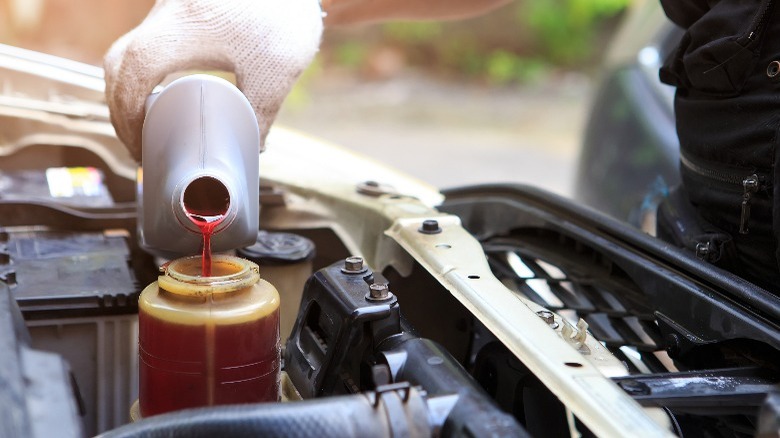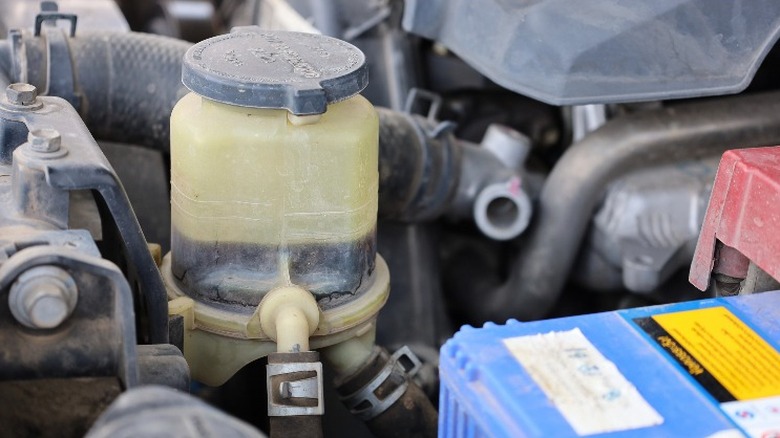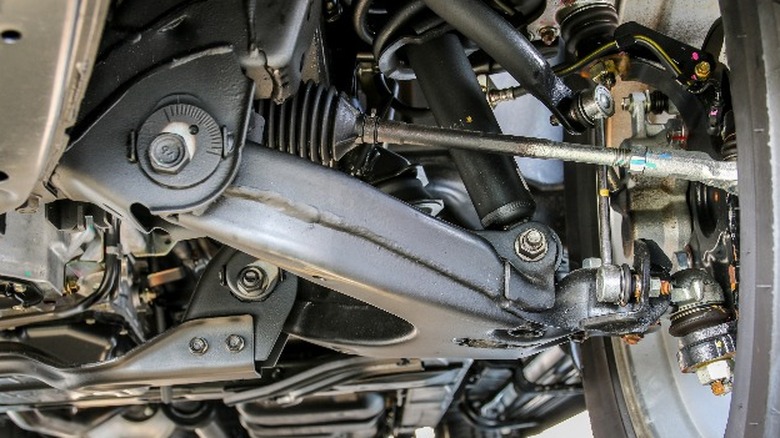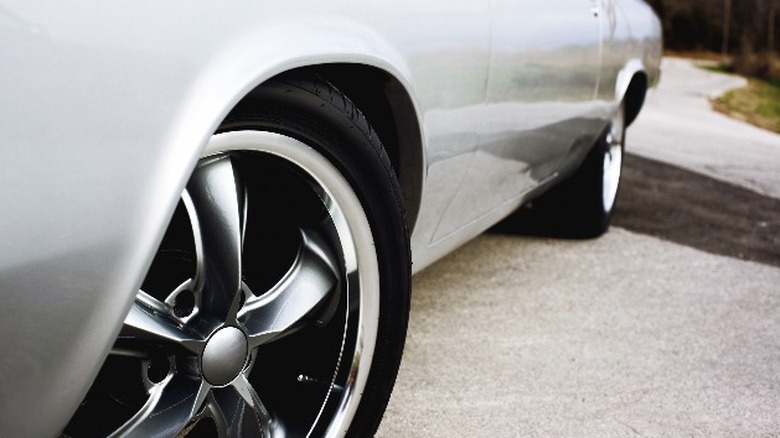Does Your Car Squeak While Turning? This Might Be Why
Is your car making strange noises when turning? If so, you're probably experiencing a combination of frustration, annoyance, and fear. But however tempting it may be to drown out those pesky sounds with your radio, unwanted noises are often a car's way of telling the driver that something is wrong. Fortunately, a squeaking sound while turning is relatively common and easy to diagnose. There are several issues that can cause this problem, but luckily, most of them are cheap to fix and require minimal equipment and skills — although, like everything, there are exceptions.
Typically, squealing or squeaking sounds when turning are due to a problem with the power steering system. This can range from something as simple as low power steering fluid to a severe issue like a faulty power steering pump. Other potential causes of squeaking sounds may include damaged suspension system components or even a fresh set of tires.
Low power steering fluid
One of the most common causes of a squeaking sound while turning is low power steering fluid. While many modern vehicles utilize electric power steering systems, many cars still feature hydraulic power steering. These cars use a pump and hydraulic or power steering fluid to help drivers turn the steering wheel.
Hydraulic power steering systems are closed — meaning that the fluid level should not drop under normal circumstances — but they are subject to wear and tear, and it's not unusual for a car to develop small fluid leaks over time. If the power steering fluid level drops too low, the hydraulic power steering pump won't be able to pressurize the system properly, potentially causing a stiff steering wheel and loud, high-pitched squealing noises while turning the wheel.
Usually, fixing this problem is as simple as adding fresh fluid to the reservoir. Severe leaks (i.e., ones that leave puddles beneath the car or drain the reservoir entirely) require professional attention and repairs. Drivers can ignore small leaks for short periods, but they will generally worsen over time and require future repairs.
Dirty power steering fluid
Another issue that commonly leads to squeaking sounds when turning is contaminated power steering fluid. On average, drivers should replace their power steering fluid every 40,000 to 80,000 miles. That's because hydraulic fluid degrades over time, weakening its ability to lubricate and pressurize the steering system. Additionally, as it moves through the system, the power steering fluid accumulates dirt, debris, and metal shavings from the pump and various components.
If drivers fail to change their power steering fluid regularly, the system may lose its ability to function correctly. This can result in problems like a stiff steering wheel, squealing noises, and even damage to steering system components. Again, the fix for this issue is relatively simple — replace the fluid. Most manufacturers provide specified schedules for fluid flushes. If you're unsure when your vehicle needs a power steering fluid flush, you should check your owner's manual or visit a reputable repair or lube shop.
Damaged suspension or steering system component
More serious causes of squeaking noises while turning include damaged suspension or steering system components. These parts can fail over time due to age, damage from a collision, or hitting a pothole. The power steering system doesn't just include hydraulic fluid and a pump — it also features a rack and pinion gear, tie rods, and a network of hoses and sensors. All of these components are subject to wear and tear over time, and common culprits of squealing sounds include damaged hoses, worn-out tie rods, and a faulty pump.
Suspension components, like ball joints, control arms, and struts, can also fail over time. When these parts wear out, it's common to hear squeaks, squeals, clunks, and groaning sounds from one or both sides of the vehicle. Fixes for these problems range from simple and cheap to highly complex and expensive. While a faulty tie rod, ball joint, or hose is quick and affordable to repair, a worn-out rack and pinion gear requires hours of repair time and up to thousands of dollars in new parts. If you suspect your car is squealing due to a damaged suspension or steering system component, you should visit a trusted mechanic.
Tires rubbing
Another frequent cause of squeaking noises when turning is the tires. A car's tires can cause squeaking noises when turning for several reasons. The most common culprit is oversized tires rubbing on trim components in the wheel well. Often, car owners will install tires that are larger than the stock parts that came on the vehicle. If the tires are too big, they may rub against mudflaps and other components when the driver turns the wheel. This can usually be remedied by removing unnecessary parts, like the mudflaps, or cutting excess plastic out of the wheel well.
Finally, your tires may be causing squeaking noises due to their age. New tires often have a waxy film or aggressive tread. When you turn the wheel on certain surfaces, these tires can make squealing noises. Alternatively, if your tires are extremely old, under or overinflated, or have uneven wear, they may be causing strange sounds as you turn the wheel. A great way to check for this issue is to inspect the tires visually or park on a level surface and turn the wheel side-to-side while a helper stands outside and listens for sounds coming from the tires. Remember, you can preserve the life of your tires by avoiding bad habits and inspecting the tire pressure and tread regularly.




